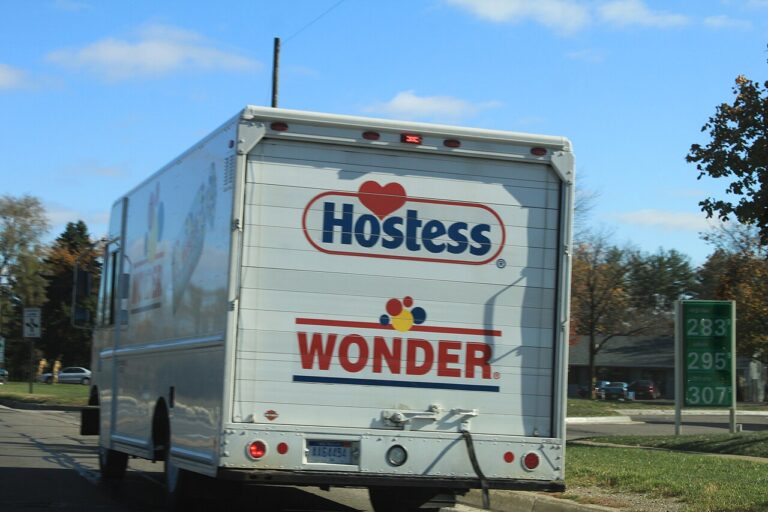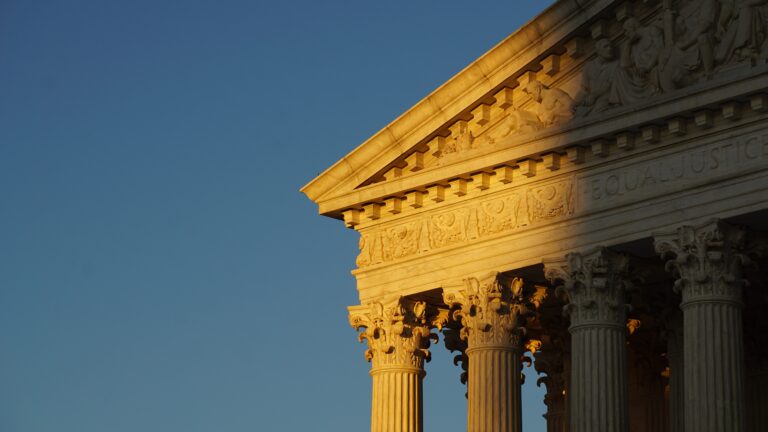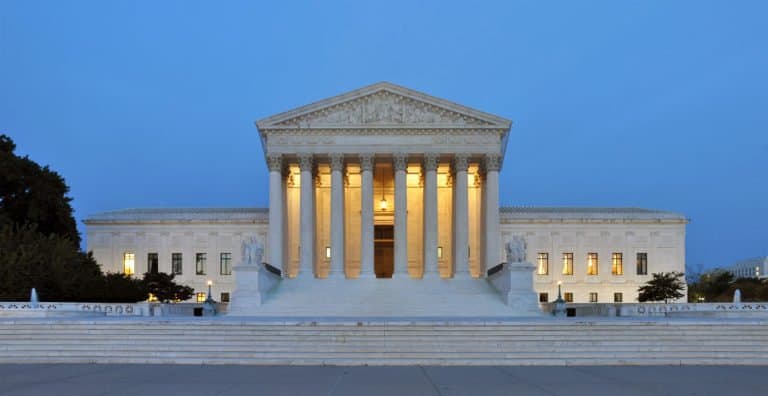Melissa Greenberg is a student at Harvard Law School.
This post is part of OnLabor’s continuing analysis of National Labor Relations Board v. Murphy Oil USA.
On Friday, counsel for the petitioners in National Labor Relations Board v. Murphy Oil USA and Epic Systems Corporation v. Jacob Lewis filed their opening merits brief before the Supreme Court.
Petitioners argue that “[i]n cases involving the interaction of two federal statutes, the first objective is to harmonize the competing provisions, if at all possible,” and the Federal Arbitration Act and National Labor Relations Act “can indeed co-exist.” The petitioners contend that:
“The FAA unambiguously mandates enforcement of class waivers in arbitration agreements, and the NLRA contains no ‘clearly expressed congressional intention to the contrary.’ [citing Morton v. Mancari, 417 U.S. 535, 551 (1974)]. So the Court should do what it has done in prior cases involving the FAA and other federal statutes: construe the other statute in a way that harmonizes it with the FAA.”
This reading of the FAA and NLRA would result in the enforcement of class arbitration waiver provisions. Petitioners further argue that the National Labor Relations Board’s view that the NLRA contains a “clearly expressed congressional intention to the contrary” is “not entitled to deference under Chevron U.S.A. Inc. v. Natural Resources Defense Council, Inc., 467 U.S. 837 (1984).”
Alternatively, the petitioners maintain that “[e]ven if the two statutes could not be reconciled, the class waivers should still be enforced.”
Again, the full brief is available here.










Daily News & Commentary
Start your day with our roundup of the latest labor developments. See all
February 12
Teamsters sue UPS over buyout program; flight attendants and pilots call for leadership change at American Airlines; and Argentina considers major labor reforms despite forceful opposition.
February 11
Hollywood begins negotiations for a new labor agreement with writers and actors; the EEOC launches an investigation into Nike’s DEI programs and potential discrimination against white workers; and Mayor Mamdani circulates a memo regarding the city’s Economic Development Corporation.
February 10
San Francisco teachers walk out; NLRB reverses course on SpaceX; NYC nurses secure tentative agreements.
February 9
FTC argues DEI is anticompetitive collusion, Supreme Court may decide scope of exception to forced arbitration, NJ pauses ABC test rule.
February 8
The Second Circuit rejects a constitutional challenge to the NLRB, pharmacy and lab technicians join a California healthcare strike, and the EEOC defends a single better-paid worker standard in Equal Pay Act suits.
February 6
The California Supreme Court rules on an arbitration agreement, Trump administration announces new rule on civil service protections, and states modify affirmative action requirements